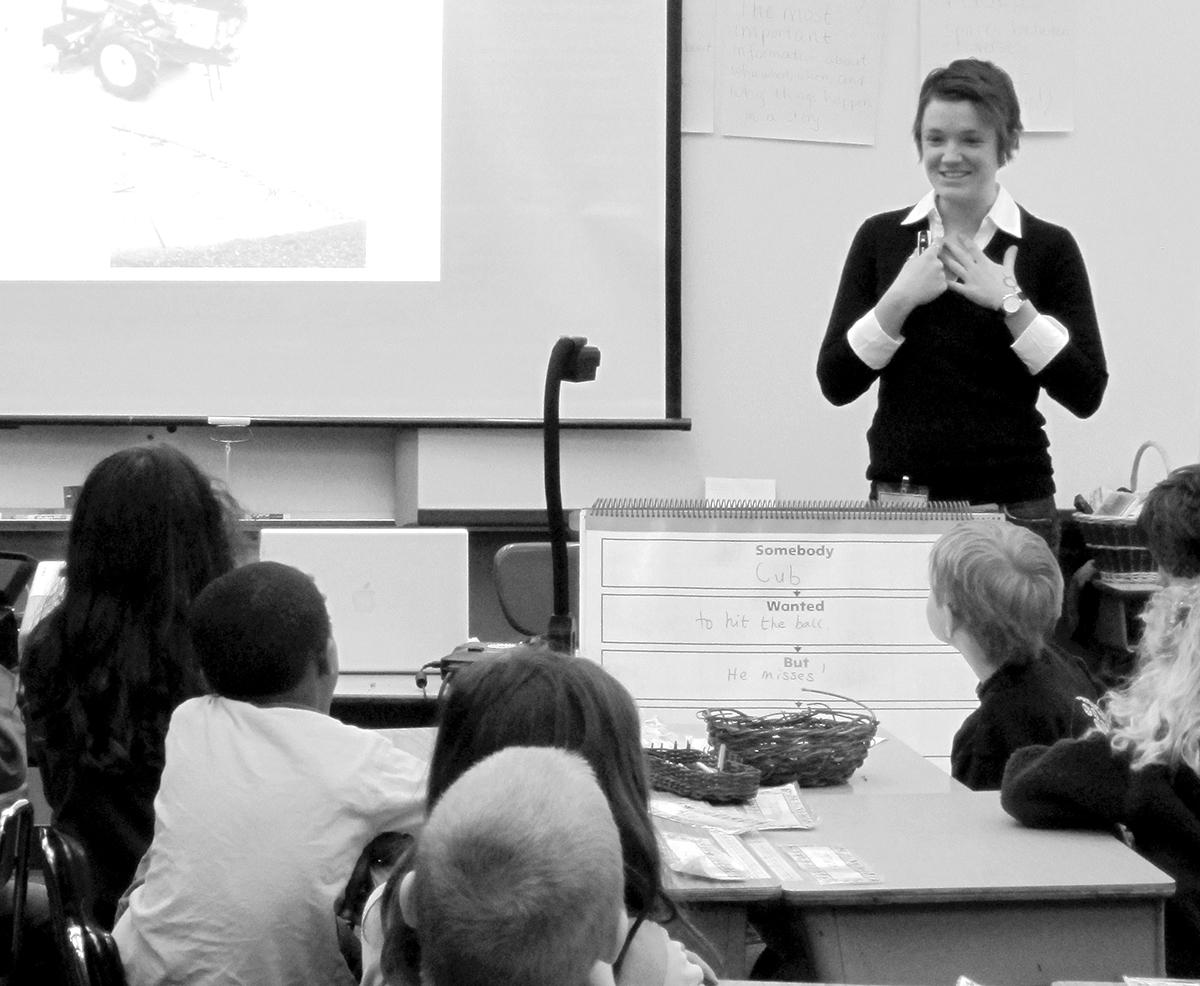
CSWS played an active community role in celebrating Women’s History Month in March by sending UO graduate students and professors into the Eugene School District 4J classrooms. The scholars spoke to the 2010 theme of the National Women’s History Project, “Writing Women Back Into History.” A team of CSWS scholars selected the graduate student presenters from a pool of applicants.
The presentations were held at two elementary schools, two middle schools and one high school, on subjects as varied as women’s roles in agriculture, contributions of women composers, manipulation of body images in the media, and women’s political activism on the international stage.
Michele Aichele, a graduate student in the School of Music and Dance, visited a group of fourth and fifth graders at Adams Elementary. Aichele played classical works written by women and talked about “Women as Composers: Writing Women Back into Music.” She also presented her talk to two classes of eighth graders at the Arts & Technology Academy at Jefferson Middle School.
Two classes of first graders at the Charlemagne French Immersion School learned about women as farmers and inventors of tools in “Women Are Great, Women are Good, Now We Thank Them for Our Food: Women’s Contributions to Agriculture” when Megan Burke visited. Burke is a graduate student in the Department of Philosophy.
4J’s International High School sponsored a joint presentation at South Eugene High School featuring graduate student Christina Mitchell from Conflict and Dispute Resolution, School of Law, and documentary filmmaker Gabriela Martínez, assistant professor in the School of Journalism and Communication.
Mitchell completed her undergraduate internship in 2009 in Cape Town, South Africa. She talked about the anti-apartheid struggle from a feminist perspective in her lecture “Clinging to Mandela: Exploring the Gendered Discourse of South African Apartheid Resistance History.” Mitchell discussed the role that women played in anti-apartheid struggles, a role largely overlooked in subsequent accounts.
Martínez showed her documentary film “Political Economy of Memory: Women and the Oaxaca Uprising,” about a political uprising and media takeover by indigenous women in Oaxaca, Mexico in 2006. The presentation emphasized the importance of having women involved in media production and how their standpoints affected what was covered during the uprising.
“Fact and Fiction: Body Image in the Time of Photoshop” was a slideshow and talk Mickey Stellavato presented to seventh and eighth grade students at the Arts & Technology Academy at Jefferson Middle School. Stellavato, a Ph.D. student in the School of Journalism and Communication, taught ways to deconstruct the images we consume by introducing a critical perspective and training students to see with critical eyes. “This presentation is meant to be, ultimately, a dialogue where we discuss some of the deeper meanings and ramifications of our visual world and what those images might mean for our self-identity and voice in the world,” said Stellavato.
After an article appeared in the Eugene Register-Guard newspaper, Stellavato had numerous invitations to speak throughout the 4J District, including a request from a Kiwanis group.
CSWS is expanding the graduate student program for the 2010-11 academic year, again choosing speakers via a competitive process. Presentations that focus on women’s rights are being given preference, in keeping with CSWS’s yearlong Lorwin Lectureship on Civil Rights and Civil Liberties—Women’s Rights in a Global World.
—by Alice Evans, CSWS

